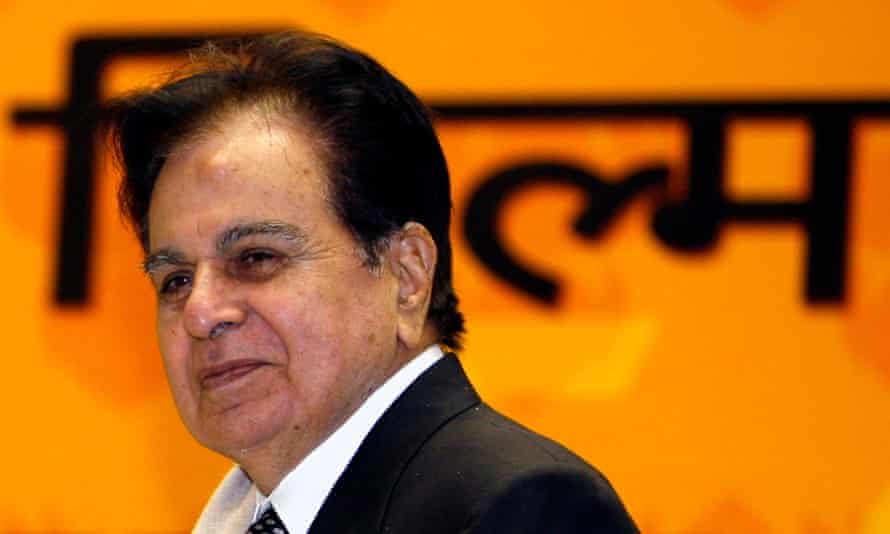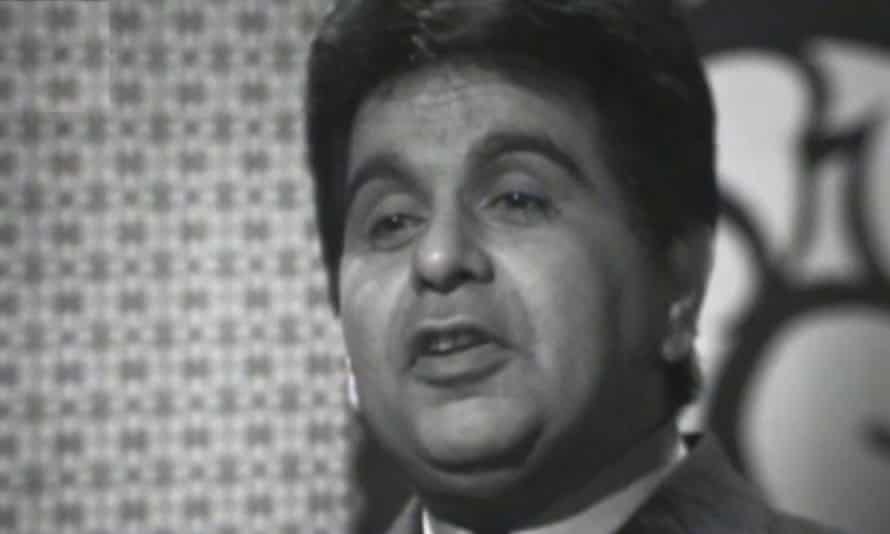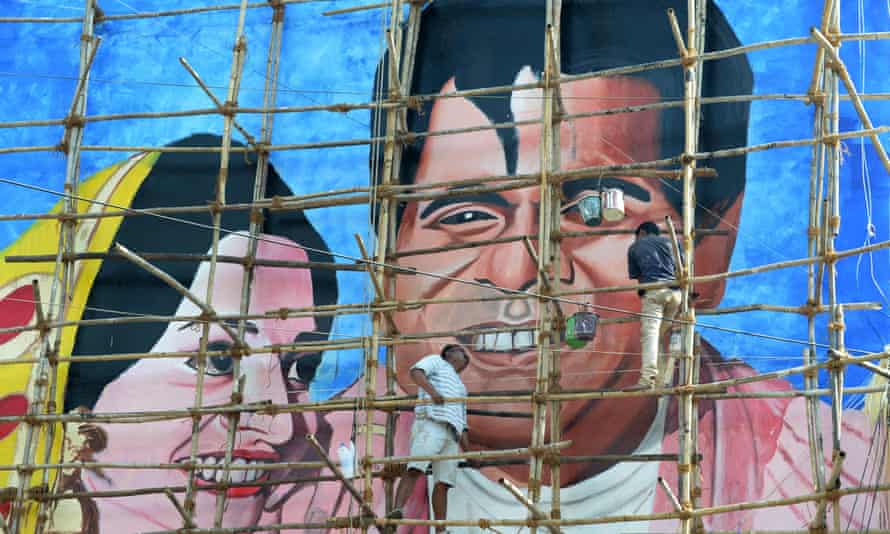The star was a defining figure in post-independence Indian cinema and was one of the country’s first method actors

Last modified on Wed 7 Jul 2021 07.40 BST
Bollywood legend Dilip Kumar, who was a defining figure in post-independence Indian cinema, has died aged 98.
Kumar had been taken to hospital in Mumbai last week suffering breathlessness, but died early Wednesday morning. “He passed away due to prolonged illness at 7.30am,” Dr Jalil Parkar of Mumbai’s Hinduja hospital said.
Kumar’s death was confirmed by a family friend who posted on Twitter on Wednesday: “With a heavy heart and profound grief, I announce the passing away of our beloved Dilip saab a few minutes ago. We are from God and to him we return.”

The news of Kumar’s death sent shockwaves of grief through India. Nicknamed “the tragedy king”, he had been a beloved figure in Bollywood across generations and was one of India’s first method actors in the late 1950s, claiming he had adopted the technique before Marlon Brando.
The prime minister, Narendra Modi, was among those to offer their condolences for Kumar’s death. “Dilip Kumar Ji will be remembered as a cinematic legend. He was blessed with unparalleled brilliance, due to which audiences across generations were enthralled,” Modi said in a tweet.
“His passing away is a loss to our cultural world. Condolences to his family, friends and innumerable admirers.”
Dilip Kumar Ji will be remembered as a cinematic legend. He was blessed with unparalleled brilliance, due to which audiences across generations were enthralled. His passing away is a loss to our cultural world. Condolences to his family, friends and innumerable admirers. RIP.
— Narendra Modi (@narendramodi) July 7, 2021
Kumar’s best known films from his five-decade long career included Devdas, Naya Daur (New Age), Ram Aur Shyam, Madhumati and Mughal-e-Azam, which was released in 1960, took eight years to make at a cost of 15m rupees and remains one of the biggest-grossing Bollywood films of all time.
Kumar, whose real name was Yusuf Khan, was born in 1922 in pre-independence India in the city of Peshawar, which is now part of Pakistan, the son of a fruit merchant and one of 12 children. After moving to Bombay, now Mumbai, Kumar fell into acting accidentally as a means to make money, but in 1947 his films began garnering critical acclaim.

His career took off and alongside Dev Anand and Raj Kapoor. Kumar became one of the three big names who dominated the golden age of Indian cinema from the 1940s to the 60s.
Kumar’s career suffered a lull in the 70s, when a new generation of actors such as Amitabh Bachan stole the limelight, but he reinvented himself in the 80s and 90s with roles in big blockbusters such as Kranti, Karma and Shakti, though was still known for being selective in his choice of roles.
Kumar starred in his last film in 1998 and then began moving into politics, becoming a legislator for the opposition Congress party. However, he became a politically divisive figure when he accepted the highest civilian honour from the Pakistan government in 1998, and was deemed a traitor to India and anti-national. He refused to return the reward.
Towards the end of his life, Kumar was showered with awards recognising his contribution to Indian cinema. In 2006, he accepted a lifetime achievement award at India’s National Film Awards in recognition of his contribution to Indian cinema, and last year the Guinness Book of World Records recognised him for having a record-breaking number of best actor awards.
